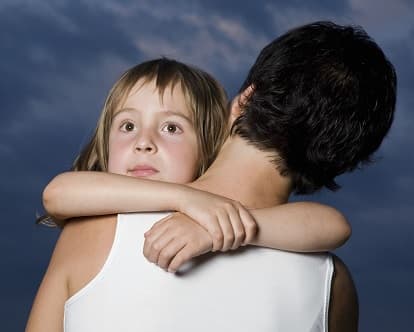| Back to Back Issues Page |
 |
|
A supportive adult can make all the difference for childhood trauma ED 139 November 19, 2019 |
A Supportive Adult can Make all the Difference for Childhood TraumaRead these articles for the stories in them, first. All three discuss scientific research linking childhood experiences to adult health. The older, well-established research found that too much childhood trauma can cause major health and emotional issues in later life. Very recent studies suggest that the presence of caring adults can prevent some of those outcomes. But the drama of these conclusions is in the stories.
How Childhood Interventions Can Improve Health OutcomesThe Guardian describes several programs that help children or their caregivers deal with trauma. Most work through helping parents-- who may have faced abuse themselves-- learn how to better support their children.Some programs also involve cooperation between various agencies that deal with abuse or trauma: hospitals, the police, courts, and schools. This "cross-sector approach" can be complicated. The hope is to provide help to children early enough to reduce the long-term effects of their bad experiences.
Trauma VocabularyTo abuse someone is to treat them badly. Abuse (it's also a noun) can be physical (beatings, etc.), emotional (constantly telling someone they are worthless, for example) or sexual. Abused children are often neglected-- not given enough to eat or wear or kept in dirty or dangerous situations. "Substance abuse" refers to the misuse of drugs or alcohol. Adversity is going through hardships like serious illness, war, or severe poverty. We also talk about adverse experiences or adverse circumstances-- very difficult situations. Interventions are actions to correct a problem. Often government or non-profit organizations try to intervene to rescue children from abuse or bad situations. Trauma is a major injury or emotionally distressing situation. Traumatic experiences can have serious health consequences immediately or years later. Coming in the next issue: The Many Ways Libraries Serve Us. Warmly, Catherine Simonton, EnglishHints.com P.S. If you don’t like to open links in emails, you can go to the EnglishHints Back Issues page and open them there. It’s https://www.englishhints.com/English_Detective-backissues.html A note if you get gmail: Have you missed any issues of English Detective? if you find English Detective in your Promotions box, you can move it to your Primary box (if you want) by clicking on it and dragging it there, then clicking Yes when asked if you want to always get it in the Primary box. If you are not already getting English Detective, you can subscribe by completing the form here. (It's free!) Also, you can reach me by mail at 1752 Driftwood Drive, El Centro, CA 92243, USA. |
| Back to Back Issues Page |
